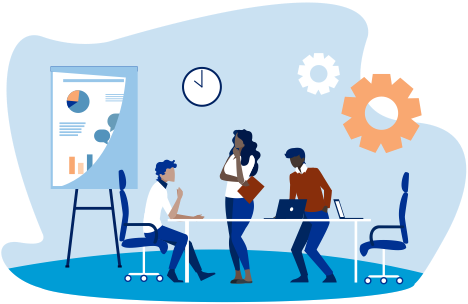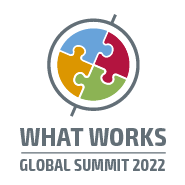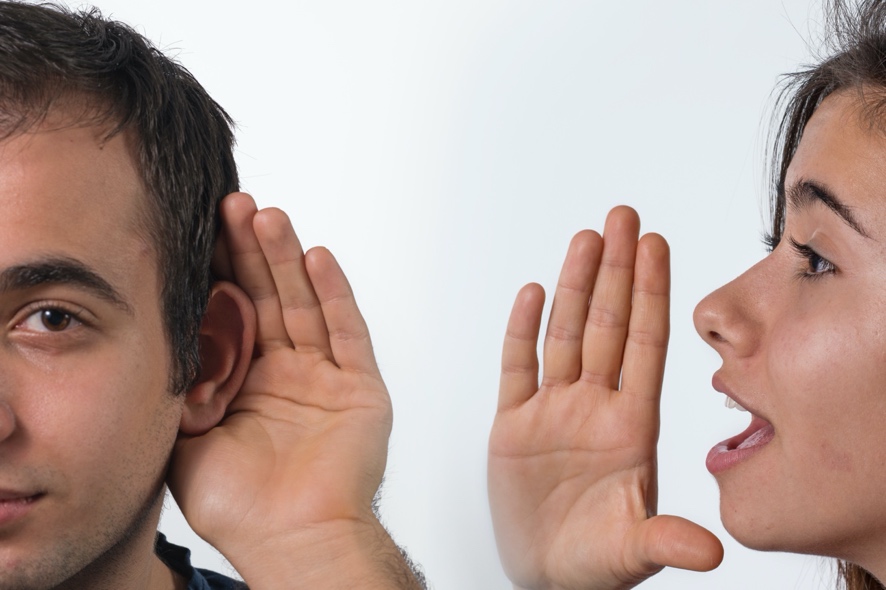AIR to Continue Serving the Disability Community and NIDILRR Grantees Through the Center on Knowledge Translation for Disability and Rehabilitation Research
We are pleased to announce that the American Institutes for Research (AIR) will continue to house the Center on Knowledge Translation for Disability and Rehabilitation Research (Center on KTDRR) for the next 5 years. The Center has provided long-standing service to the disability community at large and to NIDILRR grantees in particular. Many of those activities to support grantees’ research syntheses and other wide-ranging knowledge translation activities will continue.
Of course, with a new award cycle come fresh starts. With this award, we are honored to have more opportunities to engage even more deeply with people with disabilities from underserved communities. Our efforts over the next 5 years will highlight our commitment to ensure that disability research reflects the interests and concerns of people who need it most.
We will also continue to publish the KT Update to keep readers informed of new initiatives and supports that are in development.

Fall 2022 Webcasts on
Social Media Analytics and Vicarious Trauma

Our webcasts took a summer hiatus but are back! Two are currently in development.
One webcast will focus on social media analytics. It is a joint effort with the NIDILRR-funded
Center on Knowledge Translation for Employment Research (CeKTER). The event is tentatively scheduled for Wednesday, November 16, 2022, from 3 to 4 p.m. ET.
The other webcast will offer attendees information and resources related to supporting teams of researchers who may experience
vicarious or secondary traumatic stress as a result of empathetic listening, reflection, and analysis of the lived realities of people in underserved communities.
KTDRR webcasts are free and open to the public.
Interested in either webcast or both? Let us know! Email KTDRR@air.org and request to be put on the interest list, and we will notify you when registration is open.
New Resources for Your Systematic Reviews! Innovative Strategies for Systematic Review Methods: Info Brief on Updating Reviews, and MetaReviewer
As you develop your systematic review protocols, or consider how to update your existing reviews, be sure to check out this new info brief and software tool!
#ICYMI, the latest info brief from the Center on KTDRR,
New Methods and Technologies for Keeping Systematic Reviews Up to Date, outlines innovations in bibliographic data searching that may be helpful in identifying studies for systematic reviews.
Written by James Thomas, deputy director of the Evidence for Policy and Practice Information and Co-ordinating Centre (EPPI-Centre) at University College London, the brief begins with an overview of methods currently used to search existing bibliographic databases. Next, the author examines changes in the collection of bibliographic databases and recent advances in methods for retrieval of information, including a study using Microsoft Academic Graph (MAG) and OpenAlex as single-source databases. Finally, Dr. Thomas illustrates the potential that these new developments hold for the systematic review process with a case study of the EPPI-Centre’s living systematic map of COVID 19 research.

Next, MetaReviewer, developed with funding from the National Science Foundation, is a free, easy-to-use tool that helps researchers conduct systematic reviews and/or meta-analyses. The MetaReviewer team recently held an informative webinar, kicking off a beta-testing phase during which users are encouraged to share feedback so MetaReviewer can continue to improve the software.
The webinar recording is now available for viewing. Before viewing the recording, visit metareviewer.org to request access and set up your first project in MetaReviewer.
As users get set up in MetaReviewer, they can email support@metareviewer.org to request support with any issues that arise, or suggest additional functionalities to consider for future development.
MetaReviewer is part of the Methods of Synthesis and Integration Center (MOSAIC) at AIR. MOSAIC supports methods innovation for projects that synthesize evidence across multiple studies to inform stakeholders and create evidence-based solutions in education, health, international development, social welfare, and the workforce.


The Campbell Collaboration and Campbell UK & Ireland will co host the 2022 What Works Global Summit (WWGS) on October 18–20, 2022. The summit will be presented entirely online and is free for participants.
Center on KTDRR staff, in our roles as co-chairs of Campbell Collaboration Coordinating Groups (CGs), will be participating in these sessions. Check out details about these and other conference sessions.
Wednesday, October 19, 9:45–10:45 a.m. EDT
“Maximizing Impact Through Evidence Synthesis”
This joint session was organized by the Education Coordinating Group and the Disability Coordinating Group, including Joann Starks, co-chair of the Disability CG.
“What is the Impact of Knowledge Brokering to Policy?”
Cindy Cai, co-chair of the Knowledge Translation and Implementation (KTI) CG, moderates this session.
Wednesday, October 19, 3:00–4:00 p.m. EDT
“Communicating Evidence and Knowledge Translation”
Kathleen Murphy, project director for the Center on KTDRR and co-chair of the KTI CG, moderates this session.
Attention, NIDILRR Grantees:
KTDRR Wants to Hear From You!
Do you have information on any upcoming public meetings that you’d like to share? Or notices of conferences, articles, reports, or other resources that would be of interest to the larger KT community? If so, KT Update wants to hear from you.
For this new grant cycle, we’ll be reaching out to grantees regularly to solicit content for the quarterly issue of KT Update. This is an opportunity for grantees to share their work with the broader KT audience.
If your event is time-sensitive, please email Felice Trirogoff (ftrirogoff@air.org) with a brief article (about 150 words), and send along any related and accessible images, relevant URLs, and grantee contact information.
If you prefer to share information via our Twitter account, please direct message @KTDRR_Center with your Tweet.
We hope to hear from you soon!

| 


